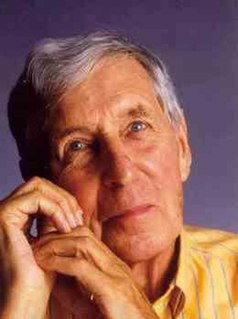A Quote by James Baldwin
European society has always been divided into classes in a way that American society never has been. A European writer considers himself to be part of an old and honorable tradition--of intellectual activity, of letters--and his choice of a vocation does not cause him any uneasy wonder as to whether or not it will cost him all his friends. But this tradition does not exist in America.
Related Quotes
The Latin American has no tribe to fall back on, as the African does, no reliable judiciary to defend his rights as the European does, no social ideal or sacred constitution as the North American does, no pervasive mythology to soften life as it does in Asia, and no even an ideology to subscribe to, as does the Russian or Chinese. Without wealth, what is there left to him but his manhood, to be flaunted and defended at every occasion?
Socialism is the doctrine that man has no right to exist for his own sake, that his life and his work do not belong to him, but belong to society, that the only justification of his existence is his service to society, and that society may dispose of him in any way it pleases for the sake of whatever it deems to be its own tribal, collective good.
I embraced Hinduism because it was the only religion in the world that is compatible with National Socialism. And the dream of my life is to integrate Hitlerism into the old Aryan Tradition, to show that it is really a resurgence of the original Tradition. It's not Indian, not European, but Indo-European. It comes from back to those days when the Aryans were one people near the North Pole. The Hyperborean Tradition.
Since the social victim has been oppressed by society, he comes to feel that his individual life will be improved more by changes in society than by his own initiative. Without realizing it, he makes society rather than himself the agent of change. The power he finds in his victimization may lead him to collective action against society, but it also encourages passivity within the sphere of his personal life.
He ran as he'd never run before, with neither hope nor despair. He ran because the world was divided into opposites and his side had already been chosen for him, his only choice being whether or not to play his part with heart and courage. He ran because fate had placed him in a position of responsibility and he had accepted the burden. He ran because his self-respect required it. He ran because he loved his friends and this was the only thing he could do to end the madness that was killing and maiming them.
Therefore, the truly great man, although he does not injure others, does not credit himself with charity and mercy (these are natural to him). He does not seek gain, but does not despise his followers who do. He struggles not for wealth, but does not take credit for leaving it alone... The ranks and emoluments of the world are to him no cause for joy, it's punishments and shame no cause for disgrace.
The analytical writer observes the reader as he is; accordingly, he makes his calculation, sets his machine to make the appropriate effect on him. The synthetic writer constructs and creates his own reader; he does not imagine him as resting and dead, but lively and advancing toward him. He makes that which he had invented gradually take shape before the reader's eyes, or he tempts him to do the inventing for himself. He does not want to make a particular effect on him, but rather enters into a solemn relationship of innermost symphilosophy or sympoetry.
Scientific discovery is a private event, and the delight that accompanies it, or the despair of finding it illusory, does not travel. One scientist may get great satisfaction from another's work and admire it deeply; it may give him great intellectual pleasure; but it gives him no sense of participation in the discovery, it does not carry him away, and his appreciation of it does not depend on his being carried away. If it were otherwise the inspirational origin of scientific discovery would never have been in doubt.
The blacks, those magnificent examples of the African race who have conserved their racial purity by a lack of affinity with washing, have seen their patch invaded by a different kind of slave: The Portuguese. the black is indolent and fanciful, he spends his money on frivolity and drink; the European comes from a tradition of working and saving which follows him to this corner of America and drives him to get ahead.
Everyone carries a part of society on his shoulders; no one is relieved of his share of responsibility by others. And no one can find a safe way out for himself if society is sweeping toward destruction. Therefore, everyone, in his own interests, must thrust himself vigorously into the intellectual battle. None can stand aside with unconcern; the interest of everyone hangs on the result. Whether he chooses or not, every man is drawn into the great historical struggle, the decisive battle into which our epoch has plunged us.
Man is an Animal, formidable both from his Passions and his Reason; his Passions often urging him to great Evils, and his Reason furnishing Means to achieve them. To train this Animal, and make him amenable to Order; to inure him to a Sense of Justice and Virtue, to withhold him from ill Courses by Fear, and encourage him in his Duty by Hopes; in short, to fashion and model him for Society, hath been the Aim of civil and religious Institutions; and, in all Times, the Endeavour of good and wise Men. The aptest Method for attaining this End, hath been always judged a proper Education.




































